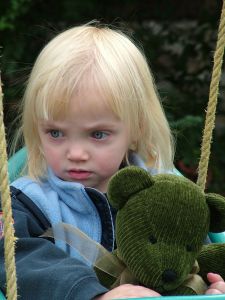 Children with attachment disorders will often draw an incorrect conclusion. The changes in caregivers and lack of control the child has had over their lives causes many children to become emotionally isolated. There is no one who has always been a part of their lives, and there are huge raps in what the child has learned along the way.
Children with attachment disorders will often draw an incorrect conclusion. The changes in caregivers and lack of control the child has had over their lives causes many children to become emotionally isolated. There is no one who has always been a part of their lives, and there are huge raps in what the child has learned along the way.
A child with an attachment disorder has never experienced a close enough relationship where modeling would have played a big part in the child’s development. There has been abusive, neglectful and just different changes in their lifetime. Perceptions about the world and how thing works are twisted in many cases. Life experience has resulted in thinking errors.
Children sometimes show their thinking errors by minimizing and denial. When you feel isolated and don’t have any control over your life, it is sometimes easier to just pretend nothing is happening or to act as if what is happening is no big deal. It is a BIG DEAL and anyone who doesn’t realize that getting new parents is something that happened and most people don’t have it happen to them.
My daughter,Makala, had to start school about nine-months after we met her. It was not the usual feelings when you send your child to kindergarten. My little girl got on the bus for school, but when she did, she left without feeling connected to her family. Her classmates responded to her stories with surprise, and she scared some of the children who had never even thought about not having the parents they did, and getting new ones.
The only thing that works for a child who has thinking errors is time. Unless there has been neurological damage to the child time to learn how to trust, and consistent role modeling teaches the child to have a more stable thought process. Time is not usually just a few months and actually, time means two things when loving a child with an attachment disorder. Time is years of life as a family and establishing traditions, and memories. However, time is also daily and regular quality time invested paying 100% attention to the needs of our children.
![]() Some of the side effect behaviors seen in children with attachment disorders are:
Some of the side effect behaviors seen in children with attachment disorders are:
- Side Effects of Attachment Disorders Series Introduction.
- Opposition.
- Control.
- Conscience Development.
- Stealing and Jealousy.
- Anger and Rage.
- Feeling.
- Requesting and Meeting the Requests.
- Decision-Making
![]() Special Needs and Adoption-Related Terms:
Special Needs and Adoption-Related Terms:
A | B | C | D | E-F | G-H-I | J-K-L | M | N-O | P | Q-R | S | T-U-V-W-X-Y-Z
For more information about parenting special needs children you might want to visit the Families.com Special Needs Blog and the Mental Health Blog. Or visit my personal website.
Photo credit for this blog entry:  (no use restrictions for this photo)
(no use restrictions for this photo)

